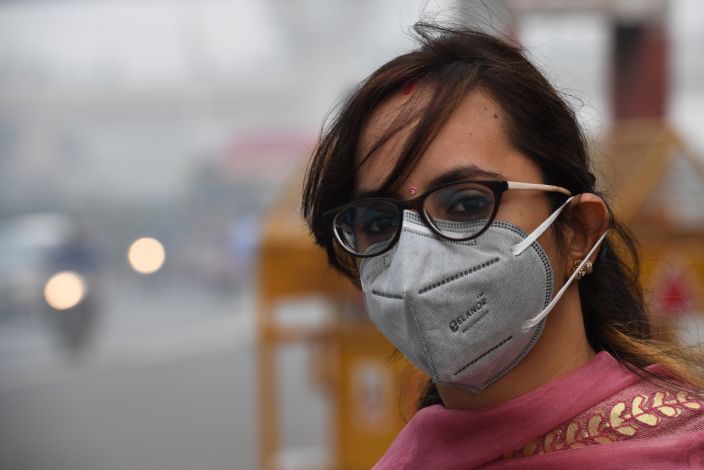Since the outbreak of severe acute respiratory syndrome coronavirus-2 (SARS-CoV-2), the virus that causes COVID-19 disease, use of face masks has become ubiquitous in India and other Asian countries such as China, South Korea and Japan.
Some provinces and municipalities in China have enforced use of compulsory face mask policy, in all public places. However, China’s national guideline has adopted a risk-based approach in offering recommendations for using face masks among health workers and the general public.
Despite the consistency in recommendation for use of face masks, symptomatic individuals and those in healthcare settings should use face masks. However, discrepancies are observed in the general public and community settings.
For instance, the US Surgeon General advised against buying masks for use by healthy people. One important reason to discourage widespread use of face masks is to preserve limited supplies for professional use in healthcare settings.
Universal face mask use in the community has also been discouraged with the argument that face masks provide no effective protection against coronavirus (COVID-19) infection.
However, there is an essential distinction between absence of evidence and evidence of absence. Evidence that face masks can provide effective protection against respiratory infections in the community is scarce, as acknowledged in recommendations from the UK and Germany.
However, face masks are widely used by medical workers as part of droplet precautions when caring for patients with respiratory infections. It would be reasonable to suggest vulnerable individuals to avoid crowded areas and use surgical face masks rationally when exposed to high-risk areas.
As evidence suggests COVID-19 could be transmitted before symptom onset, community transmission might be reduced if everyone, including people who have been infected but are asymptomatic and contagious, wear face masks.
Recommendations on face masks vary across countries and it has been seen that the use of face masks increases substantially once local epidemics begin, including the use of N-95 respirators (without availability of any other protective equipment) in community settings.
The increase in use of face masks by general public exacerbates the global supply shortage of face masks, with prices soaring and risks supply constraints to frontline healthcare professionals.
As a response, a few countries (e.g Germany and South Korea) banned exportation of face masks to prioritise local demand. WHO called for a 40% increase in the production of protective equipments including face mask.
Health authorities should optimise face mask distribution to prioritise the needs of frontline health workers and the most vulnerable populations in communities, who are more susceptible to infection and mortality if infected, including older adults (particularly those older than 65 years) and people with underlying health conditions.
People in some regions (e.g Thailand, China and Japan) opted for makeshift alternatives or repeated usage of disposable surgical masks. Notably, improper use of face masks, such as not changing disposable masks, could jeopardise the protective effect and even increase the risk of infection.
Consideration should also be given to variations in societal and cultural paradigms of mask usage. The contrast between face mask use as hygienic practice (i.e in many Asian countries) or as something only people who are unwell do (i.e in European and North American countries) has induced stigmatisation and racial aggravations, for which further public education is needed.
One advantage of universal use of face masks is that it prevents discrimination of individuals who wear masks when unwell because everybody is wearing a mask.
It is time for governments and public health agencies to make rational recommendations on appropriate face mask use to complement their recommendations on other preventive measures, such as hand hygiene. WHO currently recommended that people should wear face masks if they have respiratory symptoms or if they are caring for somebody with symptoms.
Perhaps, it would be rational to recommend that people in quarantine wear face masks if they need to leave home for any reason, to prevent potential asymptomatic or presymptomatic transmission.
In addition, vulnerable populations, such as older adults and those with underlying medical conditions, should wear face masks if available. Universal use of face masks could be considered if supplies permit. In parallel, urgent research on the duration of protection of face masks, the measures to prolong life of disposable masks, and the invention on reusable masks should be encouraged.
Taiwan had the foresight to create a large stockpile of face masks. Other countries or regions in the world might now consider this as a part of their future pandemic plans.
